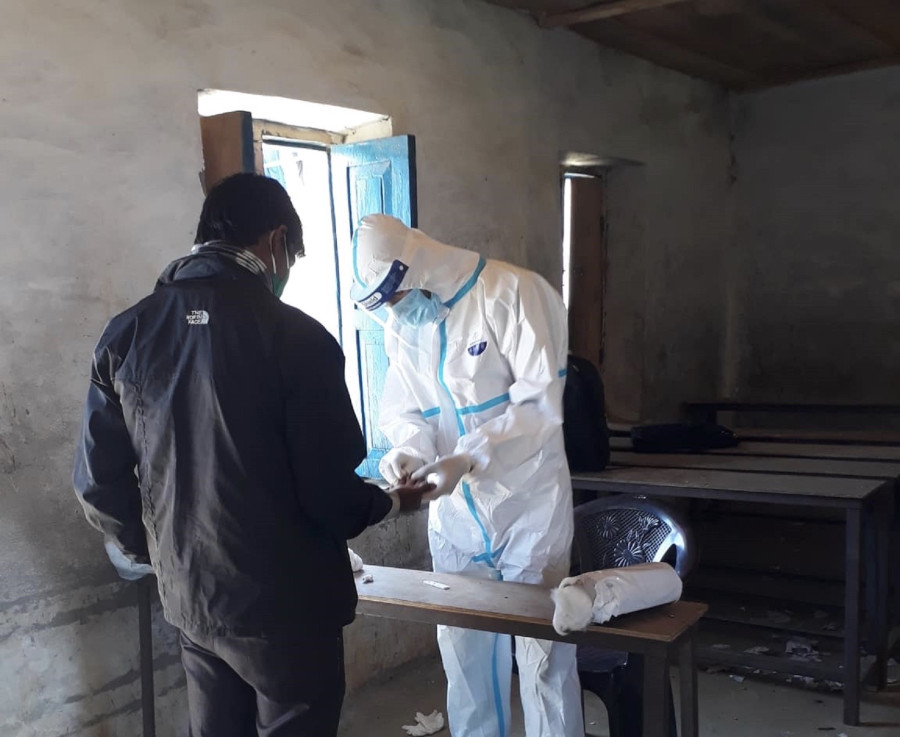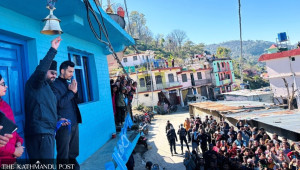Sudurpaschim Province
Use of RDT kits creates confusion in Bajhang
The use of these antibody testing apparatus continues in Bajhang and elsewhere, largely because of a lack of swift testing via PCR method.
Basant Pratap Singh
On Tuesday, a 26-year-old man, his wife and son were tested with rapid diagnostic test kits, which test the presence of antibodies in the blood cells to fight the coronavirus. The trio, who had recently returned from New Delhi, tested positive. But a PCR test conducted three days later showed that the family was in fact not infected with the virus. The unreliability of RDT kits took a harsher turn in the case of a man in Surkhet who died from Covid-19 on Thursday. The man, also a returnee from India, had registered negative on RDT kits on Wednesday and was sent home. But he tested positive via PCR test conducted posthumously.
The World Health Organisation has stated that it doesn’t recommend the use of RDT kits, except for research settings. Yet the use of these antibody testing apparatus continues in Bajhang and elsewhere, largely because of a lack of swift testing via PCR method, said Sandeep Okheda, a physician with the District Hospital Bajhang.
“Officials at quarantine facilities are allowing people to go home after they test negative via RDT, but this is very risky,” Okheda said. “Instead of quelling the risk of virus spread, it increases it. And yet, for a lack of swift testing via PCR, RDT kits are in use, despite the fact that the district Covid Crisis Management Committee has decided against their use.”
As a result, the use of RDT kits has spread chaos and fear among all communities. On Friday, of the 102 individuals in the district that were tested with RDT kits, nine registered positive. The news spread quickly, as did fear of the virus.
“When we learned that a family member was transferred to the district hospital because of coronavirus, we were shocked and started fearing if we had it too,” Kalasha Bista, a local of Sunkuda in Bitthadchir Rural Municipality, said. The PCR results of those individuals are still awaited.
“The villagers are crying while some have turned to praying for their dear ones’ safety,” Birendra BK from Kafalseri said.
The kits have even confused health workers, said Bhanubhakta Joshi, chief of the district health office. “When a large number of people tested positive on RDT kits, we were worried and confused about how to manage treatment for them,” he said. “But a majority of those results came out negative via PCR. RDT is creating unnecessary chaos among the people.”
Despite this, Sudurpaschim Province is preparing to import 20,000 more RDT kits soon, according to Gunaraj Awasthi, director of the provincial health directive.
“Because the number of individuals to be tested is so high, we are compelled to use RDT despite its compromised accuracy,” Awasthi said.




 13.12°C Kathmandu
13.12°C Kathmandu















